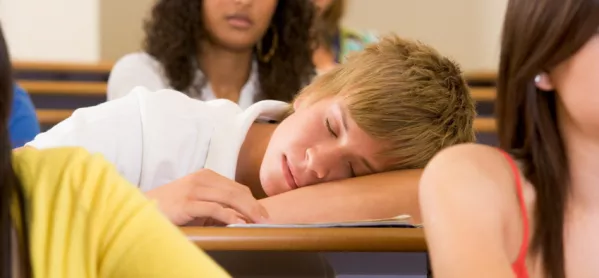Late-night social networking is tiring pupils out, research finds
Share
Late-night social networking is tiring pupils out, research finds
https://www.tes.com/magazine/archive/late-night-social-networking-tiring-pupils-out-research-finds

More than one-in-five teenagers say that they regularly wake up in the night to look at or post messages on social-media websites. And this is having a significant effect on how they feel and perform at school, according to academics from the Wales Institute of Social and Economic Research, Data and Methods (Wiserd).
The academics, who surveyed nearly 850 pupils in Years 8 and 10, will present their findings to the British Educational Research Association annual conference, held in Belfast, 15-17 September.
The Wiserd researchers found that 23 per cent of students almost always woke up in the night to check social media. A further 15 per cent said that they would do this at least once a week.
This late-night online activity was having an impact on teenagers’ ability to perform well at school. More than half of those who regularly checked the internet at night also said that they almost always went to school feeling tired. This was significantly higher than among pupils overall.
The study also found that significant numbers of pupils were reluctant sleepers: 17 per cent of Year 8 and 28 per cent of year 10 pupils said that they regularly went to bed after midnight on a school night. Among the older children, regardless of what time they fell asleep, those who woke up to use social media every night were twice as likely as other children to say that they were constantly tired.
Last week, Dr Paul Kelley, a former headteacher now working at Oxford University, told the British Science Festival that the school day should start later, to combat sleep deprivation among pupils. But the Wiserd researchers found that pupils who woke up at a regular time every day were less likely to feel tired in the morning than those whose waking times were sporadic.
Dr Kimberley Horton, who will be among the Wiserd academics presenting the research, said: “No amount of effort to develop regular bedtimes or to lengthen the time in bed would seem to be able to compensate for the disruption that using social media in the night can cause.”
You've reached your limit of free articles this month. Subscribe for £1 per month for three months and get: